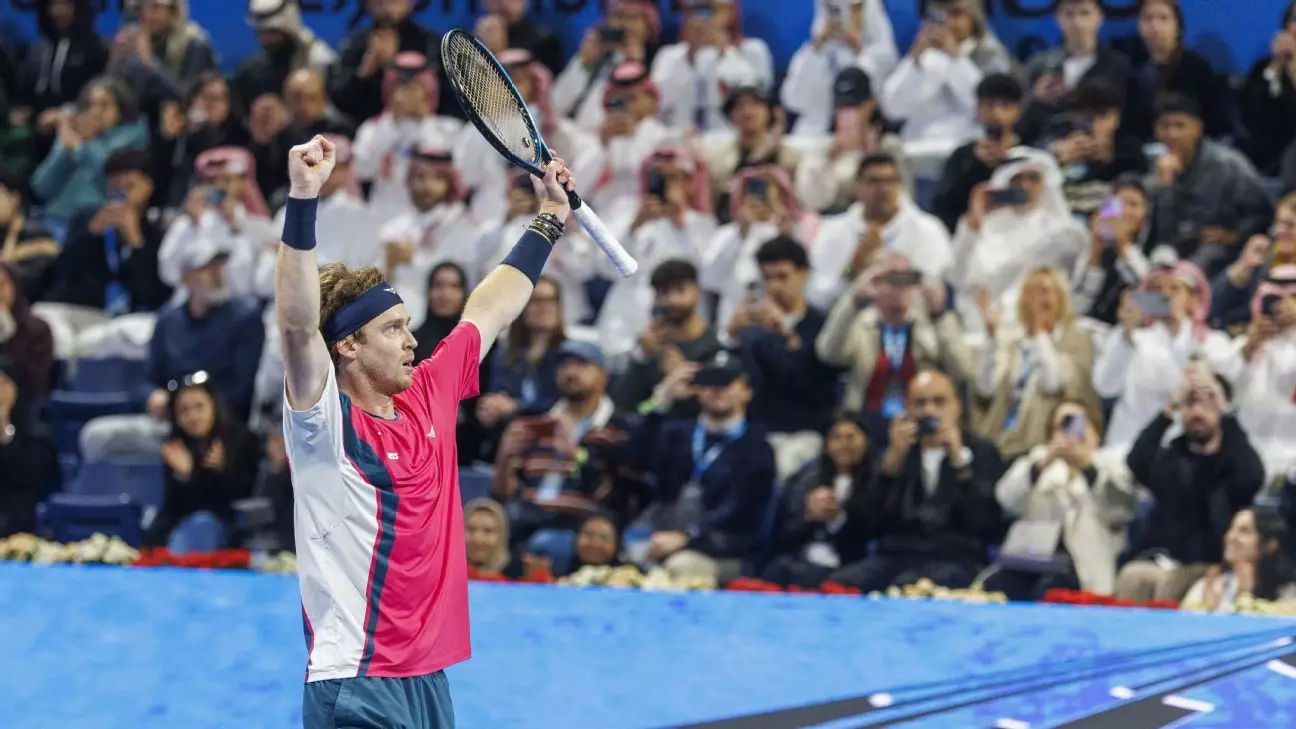In the competitive realm of professional tennis, mental resilience is often as crucial as physical prowess. For Andrey Rublev, currently ranked World No. 9, this lesson has taken time to master. Throughout his career, he faced inner struggles that not only affected his game but also led him through periods of profound doubt and anxiety. Acknowledging this, Rublev began a transformative journey to understand himself better, drawing support from unexpected sources. Conversations with Marat Safin, a two-time Grand Slam champion, played a significant role in his evolution as both a person and an athlete.
Rublev candidly expressed how he felt trapped in a cycle of uncertainty for the better part of two years. This internal conflict often manifested in emotional outbursts during matches, compromising his performance and overall well-being. “It’s one thing to feel lost for a month or two,” Rublev reflected, “but when it stretches into years, the weight becomes unbearable.” The pressure to perform at the highest levels while grappling with these feelings can lead even the strongest competitors astray.
Influence of a Tennis Legend
The turning point in Rublev’s journey came when he began to engage in discussions with Safin, who has his own historical struggles with temperament on the court. As someone who has openly battled his demons, Safin’s insights resonated deeply with Rublev. He describes their conversations as a significant reboot—”an understanding of myself,” he said, emphasizing the value of self-reflection and acknowledgment of one’s issues.
This mentorship offered Rublev a critical perspective that allowed him to redefine his purpose and approach to the sport he loves. Instead of viewing tennis merely as a source of pressure, he began to see it as an opportunity for expression and enjoyment. “It was like a restart from the bottom,” he noted. This new mindset is already bearing fruit, as evidenced by his recent performances, including a triumphant run at the Qatar Open where he demonstrated composure and skill.
Striving for Balance
The progress Rublev has made is not without its challenges. Despite finding a deeper sense of stability, he remains aware of the ongoing journey to achieve mental peace. “I’m not happy, but I’m also not in a bad place,” he stated, highlighting a critical aspect of mental health: the importance of neutrality and balance. In the high-stakes environment of professional sports, emotional equilibrium can often be elusive.
As he prepares for his upcoming match against French qualifier Quentin Halys in Dubai, Rublev carries with him not only the skills refined through rigorous training but also a newfound resilience. His story underscores the complexities athletes face beyond mere statistics or rankings. By prioritizing mental health and seeking guidance, Rublev exemplifies how the tennis community can advocate for emotional wellness while aspiring for greatness in their careers.
Rublev’s commitment to this journey serves as an inspiration for others, illustrating the critical intersection between mental health and performance in the demanding world of professional sports. As he steps onto the court, fans and peers alike are eager to see if this shift in mindset will continue to propel him forward, making his story one to watch in the unfolding narrative of tennis.

